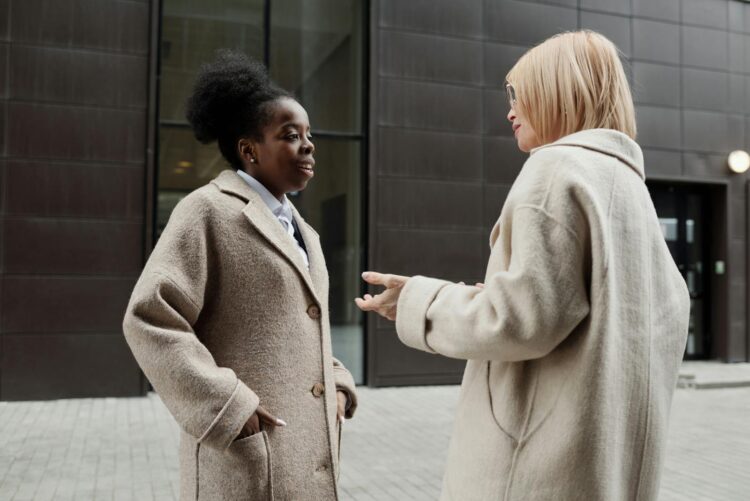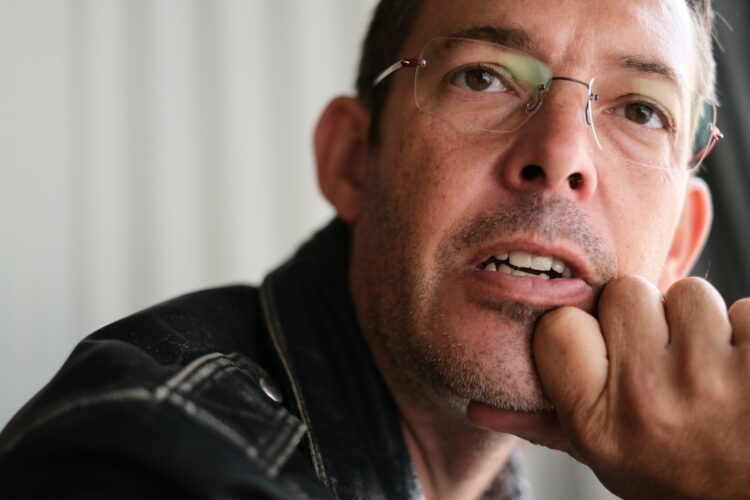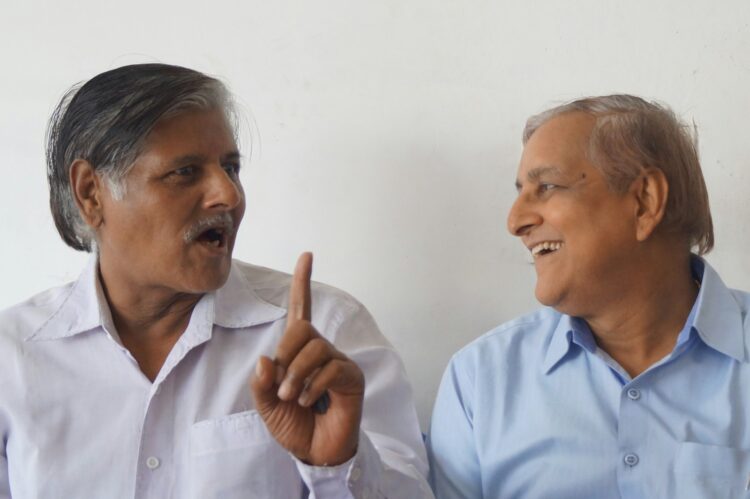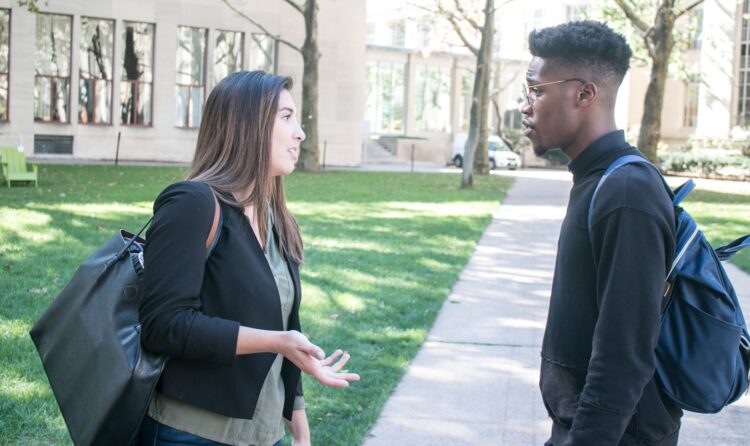
Some people won’t tell you they don’t like you—they’ll just act like they do. Instead of honesty, they rely on polite phrases that carry a quiet distance. These lines may sound harmless, but they often signal disinterest, discomfort, or hidden annoyance. If you keep hearing them, pay attention. They’re not always about kindness. Sometimes, they’re a way to keep you at arm’s length without being direct.
“We should totally hang out sometime.”

It sounds friendly, but there’s no plan, no date, and no follow-up. This phrase is often used as a polite way to end a conversation without committing to anything. If they really wanted to see you, they’d suggest a specific time or place. When this line keeps coming up but nothing ever happens, take it as a soft no. It’s about avoiding closeness, not building it.
“I’m just really bad at texting.”

This one shows up when someone doesn’t reply for days—or at all. While some people are genuinely forgetful, most make time for those they care about. If you’re always the one reaching out, and they keep blaming it on being “bad at texting,” it’s likely not about their phone habits. It’s their way of excusing disinterest without being openly rude.
“Let’s catch up soon.”

This phrase has become the adult version of goodbye-without-follow-through. People say it to end a conversation on a warm note, even if they have no intention of reconnecting. If someone says this repeatedly but never follows up, or dodges plans, you’re likely not a priority. It’s a safe way to be noncommittal without closing the door completely.
“You’re so funny!”

Sometimes, it’s genuine. But other times, it’s used to laugh off things that made them uncomfortable. If you notice someone always saying this after you make a point or share something personal, they might be deflecting. It’s a polite buffer—a way to avoid deeper connection. Pay attention to the tone. If it feels forced, it probably is.
“I’ve just been super busy.”

Everyone’s busy. But people make time for what matters. If this excuse comes up again and again, with no effort to reschedule or follow through, it’s likely not about their calendar. It’s about dodging you without confrontation. Repeated busyness without action is often code for “I’m not that into this.” It’s a gentle way to step back while pretending it’s temporary.
“That’s interesting.”

This phrase often shows up when someone doesn’t agree with you, or doesn’t care, but doesn’t want to argue. It’s vague, noncommittal, and emotionally flat. If you notice it popping up after you share your thoughts, it may not mean curiosity. It might be a signal that they’ve tuned out but want to appear polite. In conversation, tone matters just as much as words.
“I’m just not in the right headspace right now.”

Used occasionally, it’s fair. But when this phrase appears every time you try to deepen a friendship or express interest, it’s often a way to push you back without confrontation. They may not want to hurt your feelings, but they also don’t want to build anything real with you. It keeps the door open just enough, without ever stepping through.
“You’re always so… confident.”

At first glance, it sounds like a compliment. But the pause or the tone can tell a different story. Sometimes, it’s said with a hint of sarcasm or passive judgment. It may be code for “you come on too strong” or “you make me uncomfortable.” When praise feels like a backhanded observation, trust your gut. It’s probably not as flattering as it sounds.
“I’m just really focusing on myself right now.”

This is a classic way to dodge connection while still sounding thoughtful. It’s vague, self-protective, and easy to hide behind. People who genuinely care about you can focus on themselves and stay present. If someone drops this line every time you try to get closer, it’s usually not about personal growth, but about keeping you at a distance without drama.
“You’re such a unique person.”

This can be sincere, but it’s also a phrase people use when they don’t quite connect with you. If it’s followed by vague compliments and no real interest in spending time, it’s probably not about admiration. “Unique” becomes a placeholder for “different” in a way that feels isolating. When you feel more observed than included, the message is clearer than the words.
“I never know what you’re going to say next.”

Used affectionately, this line can mean you’re surprising in a good way. But used with a nervous laugh or an awkward glance, it often signals discomfort. It suggests that your energy, opinions, or sense of humor may not land well with them. Instead of directly addressing it, they keep it light—but that lightness comes from avoidance, not connection.
“I totally forgot to text you back!”

One forgotten message is human. But if it keeps happening and they brush it off with this phrase, it may be intentional neglect. The apology keeps them looking polite, but the behavior tells another story. People who care usually don’t forget multiple times. When someone forgets you regularly, it’s often because you’re not top of mind.
“You’re too good for me.”

It might sound sweet, but it’s often a subtle push-away. Instead of admitting they’re not interested or emotionally available, they flip it into a compliment. It places the distance on your supposed perfection rather than their lack of interest. This phrase lets them step away without blame—but also without honesty. It’s flattery with a side of rejection.
“I don’t want to ruin our friendship.”

This one shows up when there’s romantic tension. Sometimes it’s valid, but other times, it’s used to let someone down gently. If the friendship doesn’t actually involve shared time or effort, it’s likely just a barrier. It gives them a way to turn you down while still appearing kind. But when the relationship wasn’t that deep to begin with, it’s probably just a no.
“I think you’re great, but…”

Any sentence that starts like this rarely ends well. It softens the blow of rejection, but it’s still rejection. This phrase is often used when someone wants to back away without causing drama. The compliment up front is meant to protect your feelings, but the truth usually follows after the “but.” If you hear this often, don’t cling to the praise—it’s not the point.

